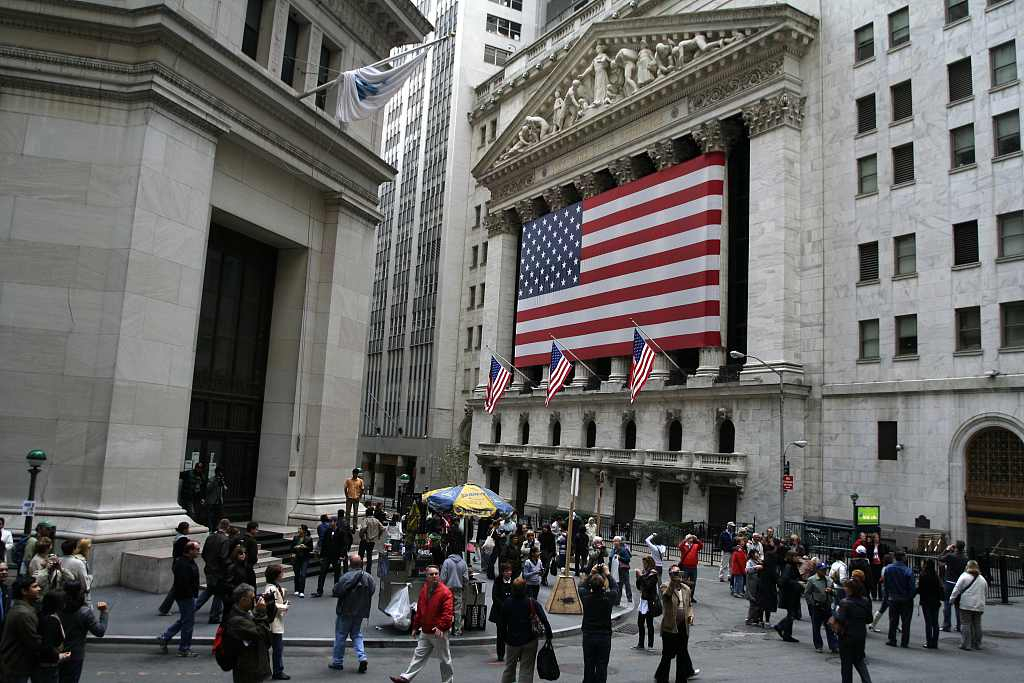A panel of economists with the National Association for Business Economics (NABE) has lowered U.S. growth forecasts for 2019 and 2020, calling Trump's trade policy a dominant risk hindering economic growth.
A survey conducted by the panel, which was released on Monday, expect U.S. real gross domestic product (GDP) growth to slow to 2.3 percent in 2019, and then to 1.8 percent in 2020.
The panel seemed more pessimistic about the outlook over the summer. Four out of five panelists expressed the belief that risks to the economic outlook are weighted to the downside, according to the survey.
"The rise in protectionism, pervasive trade policy uncertainty, and slower global growth are considered key downside risks to U.S. economic activity," said Survey Chair Gregory Daco, chief U.S. economist at Oxford Economics.

New York Stock Exchange at 11 Wall Street, Lower Manhattan, New York. /VCG Photo
New York Stock Exchange at 11 Wall Street, Lower Manhattan, New York. /VCG Photo
The report noted that trade policy is perceived as the "dominant risk," with 53 percent of panelists citing it as the key downside risk to the economy through 2020. A majority of respondents (about 85 percent) lowered their baseline outlook for growth in light of trade policy developments.
The panelists also expect business investment to continue to soften through the next year, with real non-residential fixed investment forecast to rise by 2.9 percent in 2019 and 2.1 percent in 2020, much lower than its June survey.
The survey, conducted from September 9 to 16, shows the consensus of a panel of 54 professional forecasters on macroeconomic situation, the Washington-based association said.
Recent major U.S. economic data have raised concerns over a recession, dampening market confidence. ISM manufacturing PMI and non-manufacturing PMI in September saw their lowest readings since June 2009 and August 2016, respectively. In the same month, the country only added fewer-than-expected 136,000 non-farm jobs.